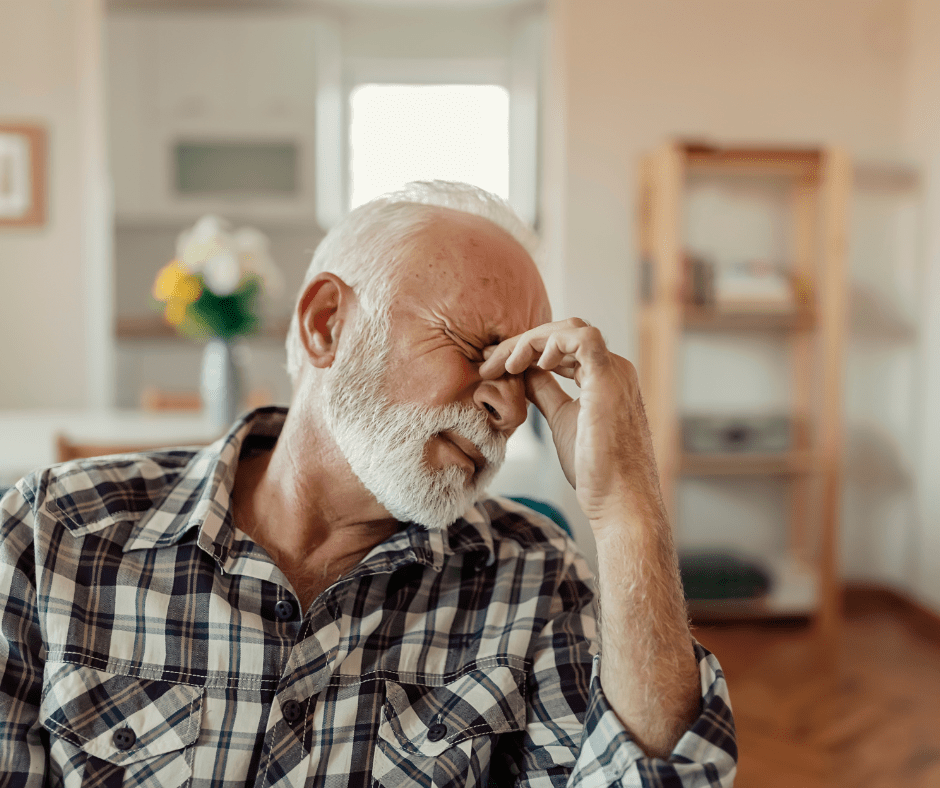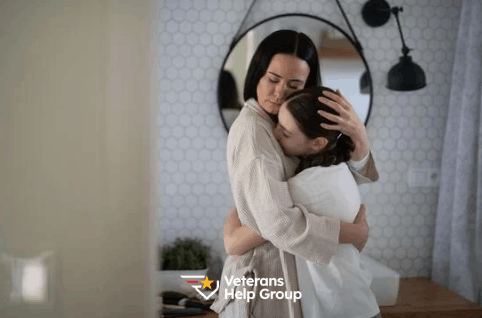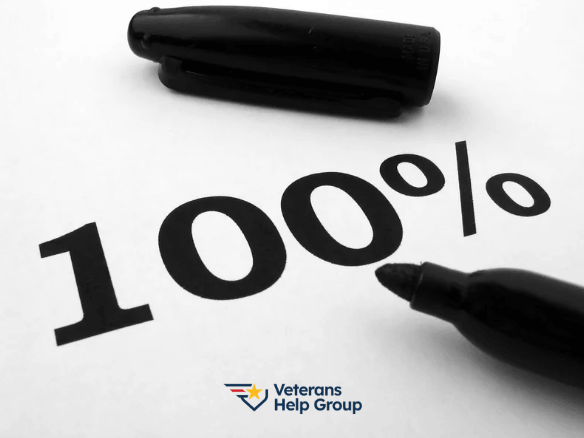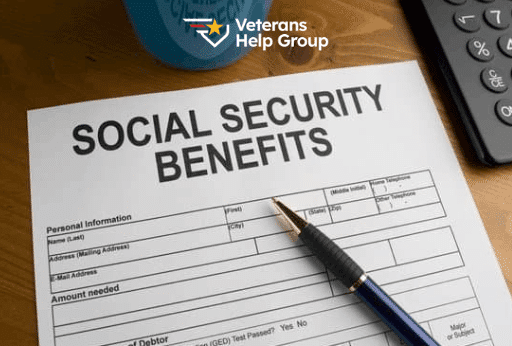
Table Of Contents
Qualifying for VA Disability Benefits for Anxiety
Generalized anxiety disorder and other anxiety disorders are common in the United States. However, the men and women who have served our country suffer from anxiety at even higher rates than the general population.
According to the National Institute of Mental Health (NIMH), about 5.7% of the general population experiences generalized anxiety at some point in their lives, and about 2.7% in a given year. In contrast, this condition impacts about 12% of veterans and about 40% of veterans who are suffering from post-traumatic stress disorder (PTSD).
Anxiety symptoms vary, and some cases are more severe than others. That means the degree to which a veteran’s life is impacted by anxiety also varies. Those variations will also impact the veteran’s VA disability rating for anxiety.
Some of the most common Symptoms may include:
- Restlessness or edginess
- Fatigue
- Irritability
- Difficulty concentrating
- Headaches
- Muscle aches and other unexplained pains
- Stomach pain
- Intrusive thoughts
- Sleep problems
There are also several specific types of anxiety that have their own characteristic symptoms. For example:
- Panic disorder is characterized by panic attacks that may happen suddenly and can debilitate the veteran with symptoms such as difficulty breathing, accelerated heart rate, intense fear and even fainting.
- Obsessive-compulsive disorder (OCD) is characterized by persistent intrusive thoughts and repetitive behaviors the veteran relies on to alleviate strong feelings of anxiety. These rituals can be time-consuming and command significant attention, making it difficult for the veteran to attend to regular tasks such as maintaining the home and going to work.
- Social phobia, also known as social anxiety disorder, triggers deep fear of and avoidance of certain settings and interactions. The veteran may be unable to engage in vocational activities like meetings, meeting new people and making presentations, and may experience panic attacks and other symptoms in social settings or work settings that challenge these boundaries.
- Agoraphobia is characterized by extreme difficulty leaving the home, or a severe limitation in the ability to do so–for example, the veteran may be unable to leave the house without a trusted companion, or may only be able to go to a handful of very familiar “safe” locations.
Anxiety As A Service-Connected Disability
The VA recognizes anxiety as a service-connected disability, but it will be up to you to demonstrate both that you suffer from this and that your condition is service-connected. The first part will typically be established by diagnostic records and other information from your treating physician and/or psychiatrist.
One important element in establishing service connection is the timing of the onset of your symptoms or significant worsening of those symptoms. This element may be covered in your medical records, but may also be established in part by information from family and others close to you about changes in your condition and behavior. An experienced veterans disability benefits advocate can help you identify and gather the information necessary to prove your claim.
Anxiety As A Secondary Service-Connected Disability
While this condition alone may qualify you for veterans disability benefits, it may also be secondary to other service-connected disabilities. Some conditions that may give rise to or be connected with anxiety include:
This is just a partial list–if you’re already receiving VA disability benefits and have developed this disorder or another type of anxiety, ask your physician whether those conditions may be connected.

VA Disability Ratings for Anxiety
Like most conditions, anxiety can result in a range of possible disability ratings. This depends on how serious the disorder is and the degree of impairment it causes. A veteran with a diagnosed, service-connected anxiety disorder may receive a VA disability rating for anxiety that is as low as 0% or as high as 100%. Currently, your VA anxiety rating is determined based on the level of impairment of social and occupational function.
For example, a veteran with a mental health disorder such as anxiety may receive a 30% VA disability rating if the veteran can generally function satisfactorily in terms of behavior, self-care, and communication, but may occasionally suffer a decrease in work efficiency and periods of inability to perform occupations tasks due to depressed mood, panic attacks, chronic sleep impairment, and similar issues.
Of course, the benefits a veteran receives for anxiety disorders and other service-connected mental health conditions will depend on the disability rating. At 0%, the veteran receives no monetary benefits, but the VA will provide healthcare for the service-connected condition and a handful of other benefits. At the 100% level, VA compensation for anxiety includes $3,831.30 in monthly benefits, full healthcare coverage and more. So, you will want to make sure you provide documentation that supports the highest possible VA disability rating for anxiety.
VA Compensation for Multiple Mental Health Disorders
It’s common for a veteran suffering from anxiety to have one or more other mental health conditions, such as depression or post-traumatic stress disorder (PTSD). In that situation, the VA considers all mental health symptoms together and assigns a single mental health disability rating rather than rating the conditions separately and then combining ratings.
The Anxiety Rating System May Change in 2025 (or after)
Proposed changes to the VA’s mental health rating system would shift to a more holistic approach that considers areas of life other than occupational and social function. At this point, it is unclear exactly when–or even whether–those new standards will take effect.
Talk to An Experienced VA Disability Benefits Advocate
Demonstrating a service-connection for anxiety and ensuring that all of your relevant symptoms are documented can be tricky. An experienced advocate can be your best resource.
To learn more about how to put together the strongest possible claim for veterans disability benefits and how your disability may be rated, consider speaking with a veterans disability advocate. At Veterans Help Group, we put our knowledge and experience to work helping disabled veterans make effective claims for disability benefits and appeal denials or low disability ratings. To learn more, contact us here or call (855) 855-8992 to get started.
Read More:
- HOW TO INCREASE YOUR VA DISABILITY RATING FROM 80% TO 100%
- DIFFERENT TYPES OF 100% VA DISABILITY RATINGS
- THE DIFFERENCE BETWEEN 100% FOR UNEMPLOYABILITY AND 100% DISABILITY RATING
- 50% VA DISABILITY RATING EXPLAINED
- WHAT DOES IT MEAN TO HAVE A 100% VA DISABILITY RATING?
- WHAT BENEFITS DOES A 60% VA DISABILITY RATING GET?

Discounts for Military Veterans 2026
Discounts for Military Veterans 2026 As a military veteran, numerous companies continue to honor...

100% VA Disability Benefits List For 2026
100% VA Disability Benefits List for 2026 When a veteran is approved for VA disability benefits,...

DIC Rates for 2026
DIC Rates for 2026 Dependency and Indemnity Compensation (DIC) can be a lifeline for surviving...





